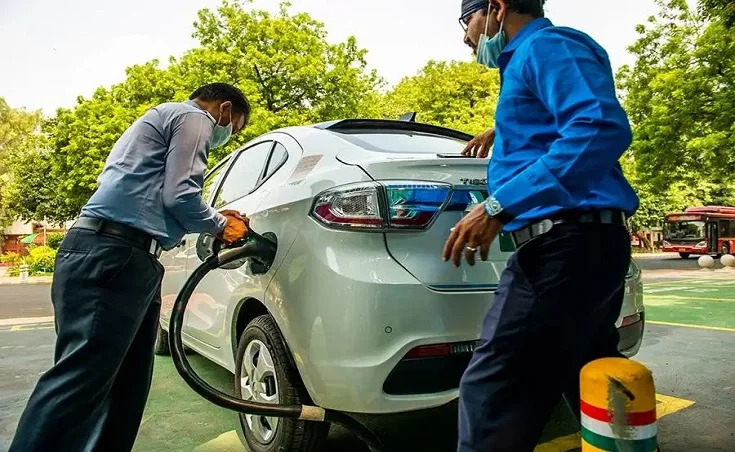
Embracing the Future: EU Mandate on ESG and Adopting EV Cabs in India by MNCs
In recent years, the world has witnessed a significant shift towards sustainability and environmental consciousness. Businesses, governments, and individuals are recognizing the importance of incorporating Environmental, Social, and Governance (ESG) principles into their practices. As part of this global movement, the European Union (EU) has been at the forefront of promoting sustainable initiatives. One such move is the EU's mandate on ESG, which has far-reaching implications for multinational corporations (MNCs) operating in India. This blog explores how adopting Electric Vehicle (EV) cabs for official use in India is not only aligned with the EU's ESG mandate but also proves beneficial for MNCs.
The EU's ESG Mandate
The EU's ESG mandate is a comprehensive framework designed to encourage businesses to integrate sustainability practices into their operations. ESG stands for Environmental, Social, and Governance, and it focuses on three key aspects:
- Environmental: Reducing carbon footprint, conserving resources, and addressing climate change challenges.
- Social: Promoting fair labor practices, diversity and inclusion, and community engagement.
- Governance: Enhancing transparency, accountability, and ethical decision-making within the organization.
By adhering to the ESG principles, MNCs can showcase their commitment to sustainability and gain a competitive advantage in the global market. This commitment is vital as consumers and investors are increasingly favoring environmentally and socially responsible companies.
Adopting EV Cabs in India
As part of their efforts to meet the EU's ESG mandate and demonstrate their commitment to sustainability, MNCs are considering adopting EV cabs for official use in India. This shift from traditional fossil fuel-powered vehicles to electric alternatives brings forth several advantages:
- Reduced Carbon Footprint: EVs produce zero tailpipe emissions, significantly reducing the carbon footprint compared to conventional vehicles. By using electric cabs, MNCs can actively contribute to mitigating the effects of climate change.
- Air Quality Improvement: India, like many other countries, faces severe air pollution challenges, particularly in urban areas. Electric cabs do not emit harmful pollutants, thereby improving air quality and creating a healthier environment for citizens.
- 3.Energy Efficiency: Electric vehicles are more energy-efficient than internal combustion engine vehicles, contributing to energy conservation and reducing the strain on natural resources.
- Positive Brand Image: Embracing sustainability practices and adopting EVs for official use enhances an MNC's brand image. Customers are more likely to choose products and services from environmentally responsible companies, leading to increased loyalty and market share.
- Regulatory Compliance: Governments worldwide are incentivizing the adoption of EVs through various policies and regulations. By adopting EV cabs in India, MNCs ensure compliance with evolving environmental regulations.
- Cost Savings: Although the initial investment in EVs may be higher, the operational and maintenance costs are generally lower than traditional vehicles. Over time, this can lead to substantial cost savings for MNCs.
- Employee Satisfaction: Employees are increasingly valuing sustainability initiatives in their workplaces. Providing eco-friendly transportation options not only boosts morale but also attracts and retains top talent.
Conclusion
The EU's mandate on ESG is a pivotal step towards building a sustainable future. Embracing this mandate and adopting EV cabs for official use in India aligns MNCs with global sustainability goals and sets a positive example for the business community. Beyond compliance, investing in electric mobility can lead to numerous benefits, including reduced carbon emissions, improved air quality, cost savings, and enhanced brand reputation.
As MNCs continue to integrate ESG principles into their strategies, they not only contribute to a greener planet but also strengthen their competitive advantage in a rapidly evolving business landscape. By embracing the shift towards EV cabs in India, MNCs can be at the forefront of sustainable mobility and set an example for others to follow, creating a positive impact on both society and the environment.
For futher discussion connect at info@arccabs.com or visit www.arcelectric.in